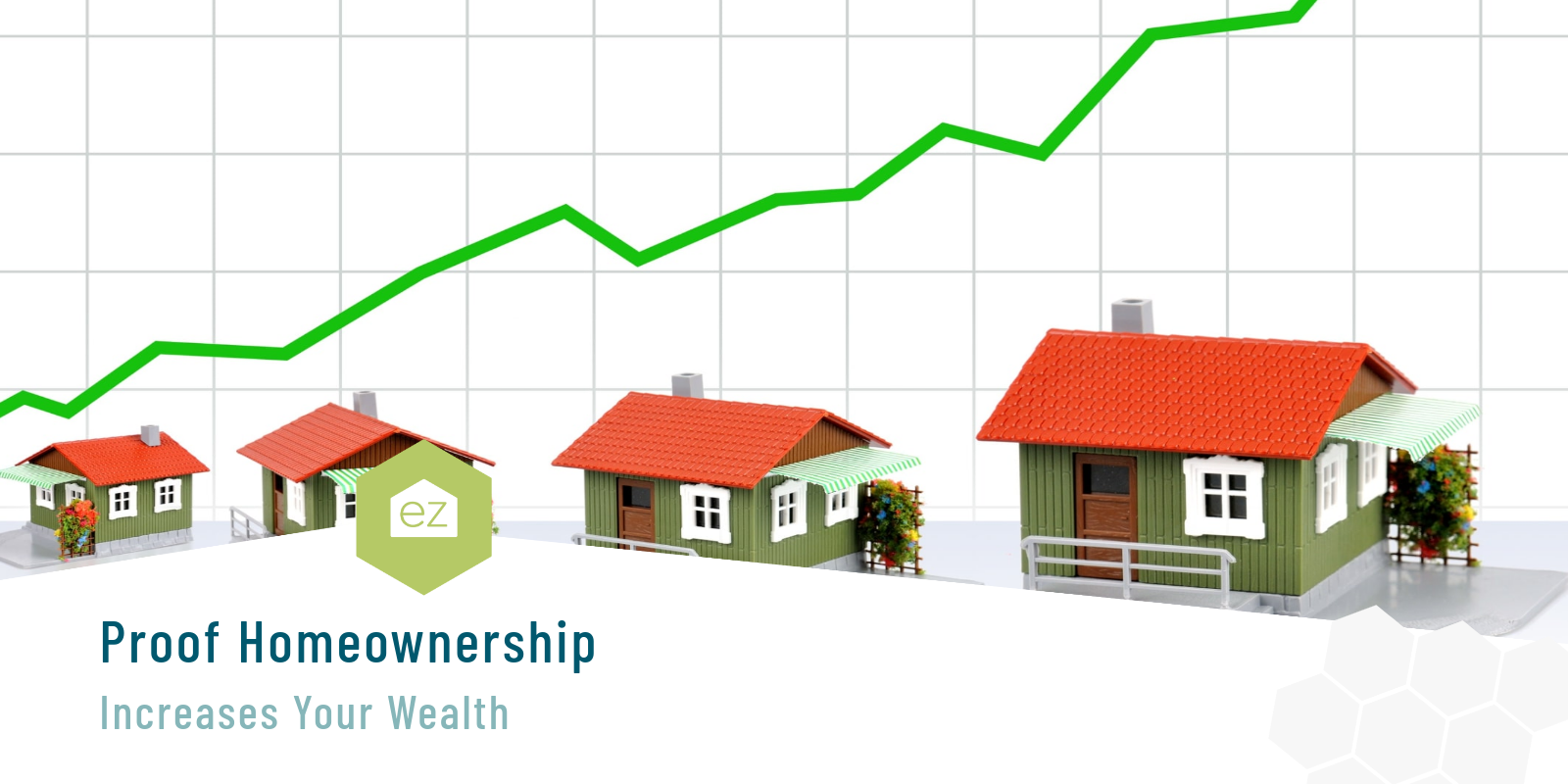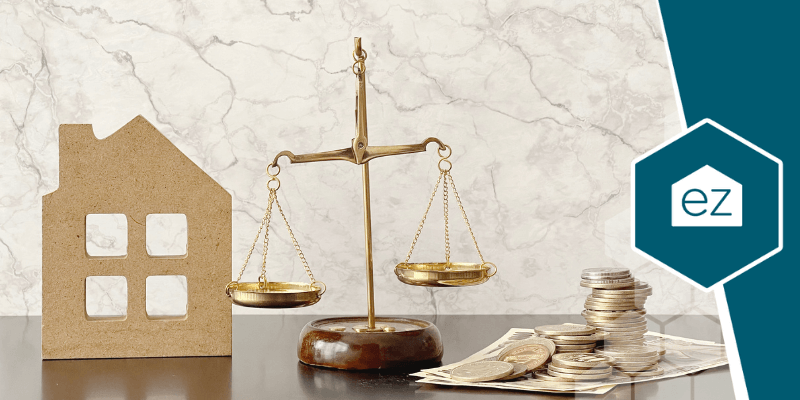Proof Homeownership Increases Your Wealth

Proof Homeownership Increases Your Wealth
Mortgages don’t feel very affordable right now, with interest rates high. But that’s not just a perception. Housing affordability is at its lowest rate in about a decade. There is a silver lining to these statistics to remind homeowners what they’re doing is positive for their long-term financial wealth.
The conclusion of a recent release from the National Association of Realtors (NAR) shows homeownership does indeed help people increase their wealth. According to the release, low-income homeowners built $98,900 in wealth since 2012. Upper-income households built even more, averaging $150,800.
How did owning real estate add to their wealth? Look more deeply at the numbers.
How Homeownership Increases Wealth, Even in a Vacuum
For many people, a house is the most significant investment they’ll ever purchase. And it’s an essential one, too. Owning a home puts a roof over our heads, but for many people, a home will be the most important and largest purchase they ever make. And for most middle-class home buyers, it requires leverage in the form of mortgage debt.
When a large asset increases in value, all that leverage adds up. And home doesn’t increase by a few dollars here and a few dollars there. Over the years, that value can increase by tens of thousands of dollars, or even hundreds of thousands, depending on the size, location, and amenities of that home coupled with market demand.

As the NAR reported, the typical middle-income homeowner added $122,100 in wealth from their home, appreciating in value by 68% over ten years. In other words, simply by purchasing a home and living in it, these homeowners could have increased their net worth by over $10,000 per year. For many people, it would take investing a lot of money in the stock market to see similar gains in wealth.
To clarify, this is net worth and not necessarily cash-on-hand. As Investopedia defines it, net worth is all of a homeowner’s liabilities subtracted from their total assets. Total assets can include equity in a home, which grows over time in two ways. As the homeowner pays off mortgage debt, less of the mortgage falls under the homeowner’s liability. Concurrently, every mortgage payment builds their equity in the home as they pay down the principal. And, as time marches on, the home ideally appreciates in value along with the economy while the homeowner pays off the debt.
That’s exactly what the numbers showed. Homeowners who benefited from home price appreciation also reduced their debt by 21%. That makes homeownership an excellent foundation for building equity in an asset and expanding overall net worth.
Assuming the home’s mortgage payment is affordable, the homeowner builds wealth in the “background” as they go about their daily life without causing additional stress to save.
Everyone Can Build Wealth Through Real Estate

Though the stats suggest that home ownership was a great boon to many, it’s worth noting that for different investors, there can be different results. Those in the lower-income bracket gained less value than people in middle-income and higher-income brackets. But it’s also worth noting that everyone, on average, did build net worth over the measured time period of about a decade.
Lawrence Yun, NAR’s Chief Economist, noted that people from all walks of life seemed to enjoy the wealth-building benefits of home ownership. This is because a mortgage can act like a forced savings account. After all, everyone has to pay for shelter in some way. Those who pay off a mortgage put money towards home equity rather than paying off their landlord’s bills.
Much of a mortgage payment goes to other costs, like interest, property taxes, and potential HOA fees. But a significant portion still goes to the principal and building equity. Under a typical amortization schedule, this amount increases over time. It means the homeowner is basically investing some of their essential living expenses back into their net worth.
Home Ownership vs. Renting: How Does It Stack Up?
The idea that a mortgage is a method of forced savings is not new. It raises the classic question: is it better to own a home or to rent one? The Urban Institute recently ran some numbers to provide insight. Interestingly, they found that buying a home outperformed stocks and bonds as investments in the period they chose.
They also ran comparisons: what if you rented a home but invested the savings into the stock market? According to the piece, the benefits of home ownership varied by locale. For example, rent savings in high-cost-of-living areas were relatively low. But in areas where a buyer could secure more homes for their money, such as rural areas or cities with low costs of living, it was possible to build more wealth through homeownership.

This suggests that not everyone’s situation will be the same. Still, generally speaking, home ownership will lead to more wealth over time than renting and investing in the stock market.
The article also cited numbers that suggest the average homeowner’s household wealth is $231,000, while the average household wealth of a renter is just $5,200. While this is an interesting correlation, it hints that for lower-income people, it can be harder to secure a home in the first place. But for those with the means, buying a home for good value can be one of the best ways to build wealth over the long term.
Start Your Home Search
Preston Guyton
Share this Post
Related Articles
Real Estate Information
The Role of a Buyer’s Agent in Real Estate Transactions
Real Estate Information
Who’s Buying What? Exploring Home Buyer Generational Trends
Real Estate Information
Your EZ Guide to Idaho Property Taxes
Real Estate Information





